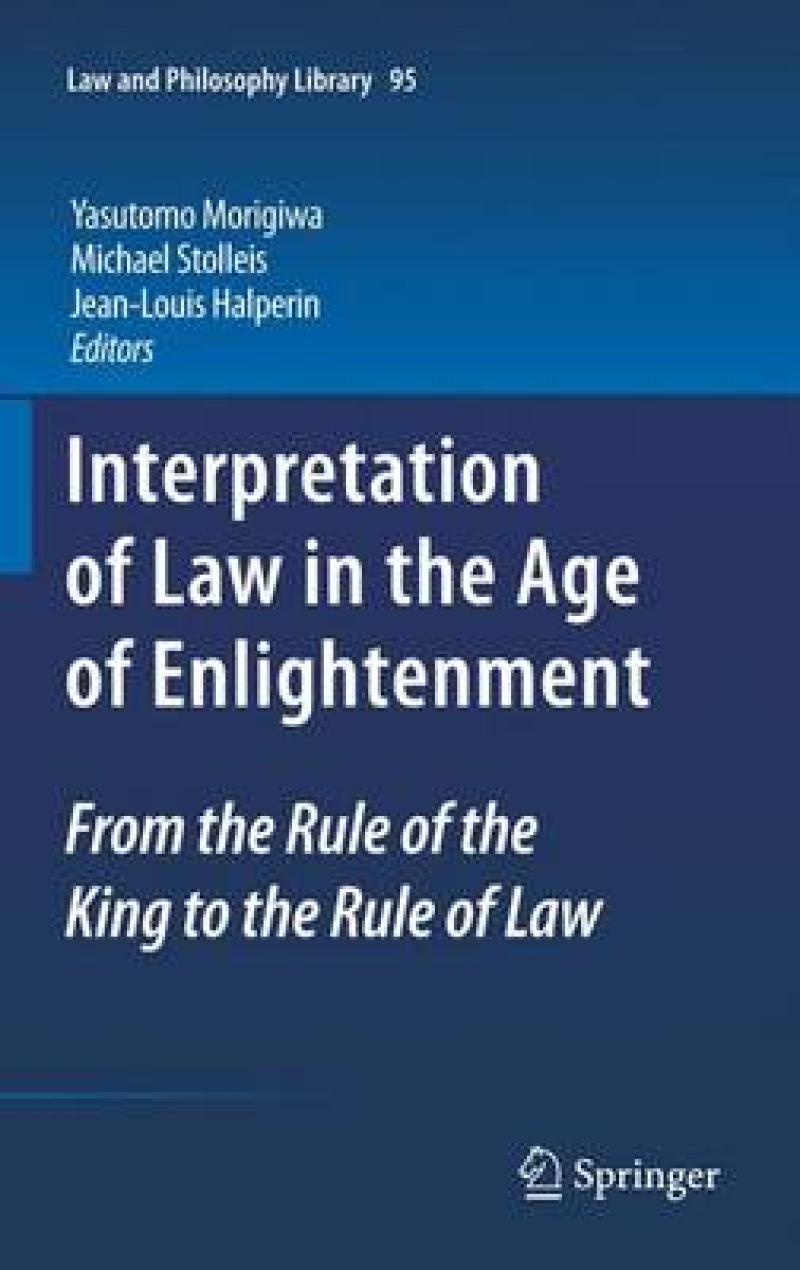A collaboration of leading historians of European law and philosophers of law and politics identifying and explaining the practice of interpretation of law in the 18th century. The goal: establishing the actual practice in the Age of Enlightenment, and explaining why this was the case. The ideology of the Age was that law, i.e., the will of the sovereign, can be explicitly and appropriately stated, thus making interpretation redundant. However, the reality was that in the 18th century, there was no one leading source of national law that would be the object of interpretation. Instead, there was a plurality of sources of law: the Roman Law, local customary law, and the royal ordinance. However, in deciding a case in a court of law, the law must speak with one voice. Hence, interpretation to unify the norms was inevitable. What was the process? What role did justification in terms of reason, the hallmark of the Enlightenment, play? These are some of the questions addressed.
Les mer
A collaboration of leading historians of European law and philosophers of law and politics identifying and explaining the practice of interpretation of law in the 18th century. Instead, there was a plurality of sources of law: the Roman Law, local customary law, and the royal ordinance.
Les mer
Editors’ Preface; Morigiwa Yasutomo, Michael Stolleis, Jean-Louis Halpérin.- Foreword from the Herstec Project; Sato Shoichi.- About the Contributors.- I. Introduction.- Judicial Interpretation in Transition from the Ancien Régime to Constitutionalism; Michael Stolleis.- II. The case of France.- Legal Interpretation in France under the Reign of Louis XVI through the Gazette des Tribunaux; Jean-Louis Halpérin.- Legal Interpretation through the Case Law Book of the Parlement de Flandre; Serge Dauchy.- II. The case of Germany.- The Object of Interpretation: Legislation and Competing Normative Sources of Law in Europe during the 16th to 18th Centuries; Heinz Mohnhaupt.- The Concept and Means of Legal Interpretation in the 18th Century; Jan Schröder.- Necessity: Pandectists between Norm and Reality (1780-1870); Hans-Peter Haferkamp.- IV. The Nature of Legal Interpretation.- Interpretation by Another Name; Morigiwa Yasutomo.- What is Interpretation of the Law for the French Judge? Michel Troper.- The Craft of Interpretation ; Bradley Wendel.- Concluding Remarks.- Legal Interpretation in 18th Century Europe: Doctrinal Debates versus Political Change ; Jean-Louis Halpérin.- Index.
Les mer
This book examines the actual practice of the interpretation of law in the Age of Enlightenment versus the ideology of the Age and explains the reason for and difference between the two. The ideology of the Age of Enlightenment was that law, i.e., the will of the sovereign, can be explicitly and appropriately stated, thus making interpretation redundant. However, the reality was that in the 18th century, there was no one leading source of national law that would be the object of interpretation. Instead, there was a plurality of sources of law: the Roman Law, local customary law, and the royal ordinance. Yet, in deciding a case in a court of law, the law must speak with one voice, making interpretation to unify the norms inevitable. This book discusses the process involved and the role played by justification in terms of reason - the hallmark of Enlightenment.
Les mer
Unique interdisciplinary work in an unexplored field A collaboration of leading historians of European law Provides a missing link to those working in related disciplines. Historical reflection on how a governing ideology actually plays out in public institutions Provides important relevance to various disciplines related to textual interpretation
Les mer
Produktdetaljer
ISBN
9789400737730
Publisert
2013-10-17
Utgiver
Vendor
Springer
Høyde
235 mm
Bredde
155 mm
Aldersnivå
Research, P, 06
Språk
Product language
Engelsk
Format
Product format
Heftet
